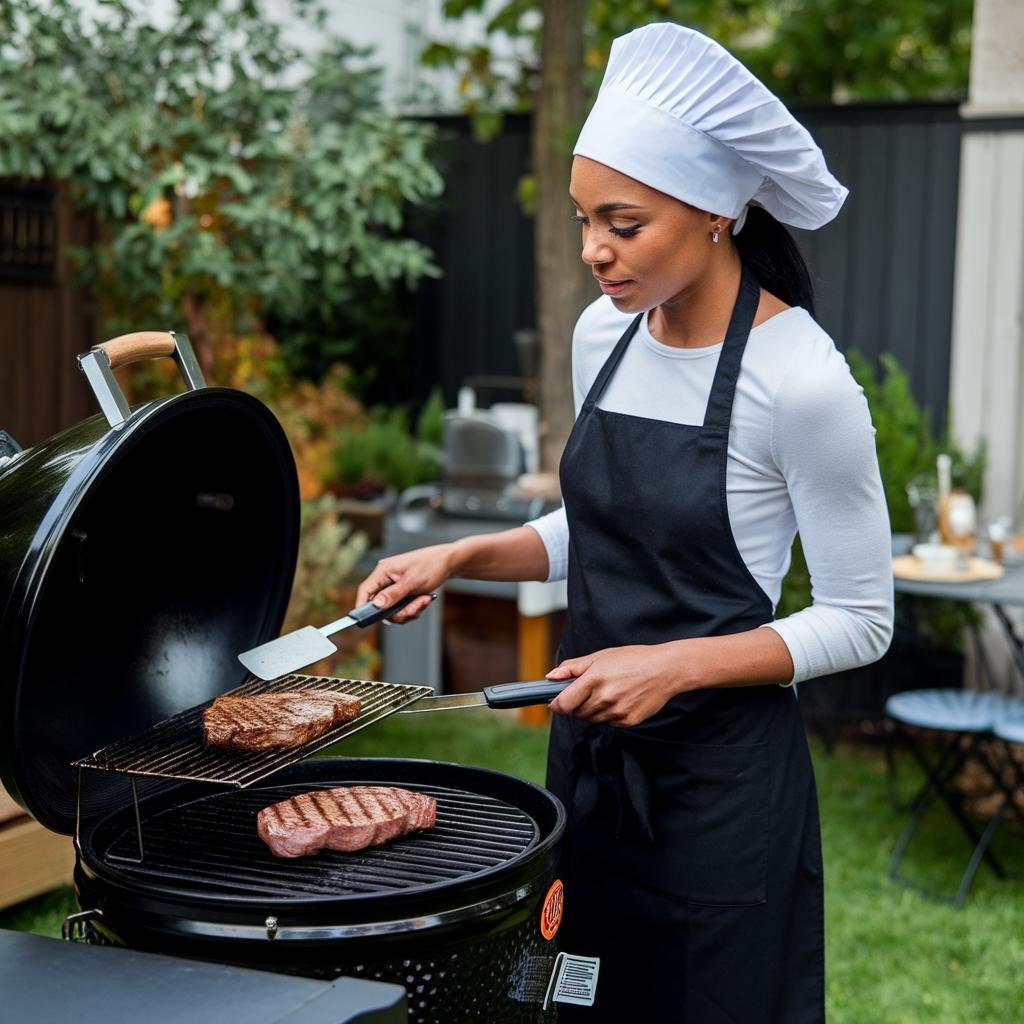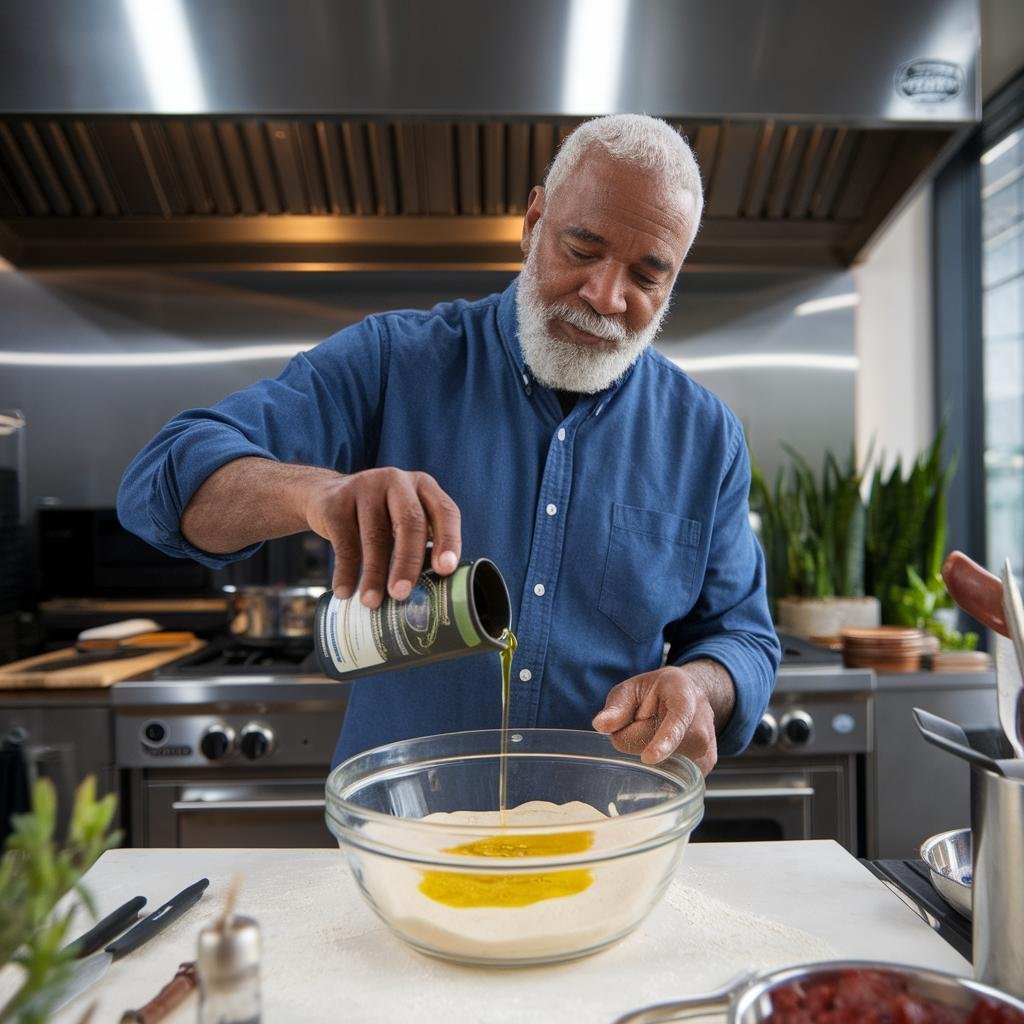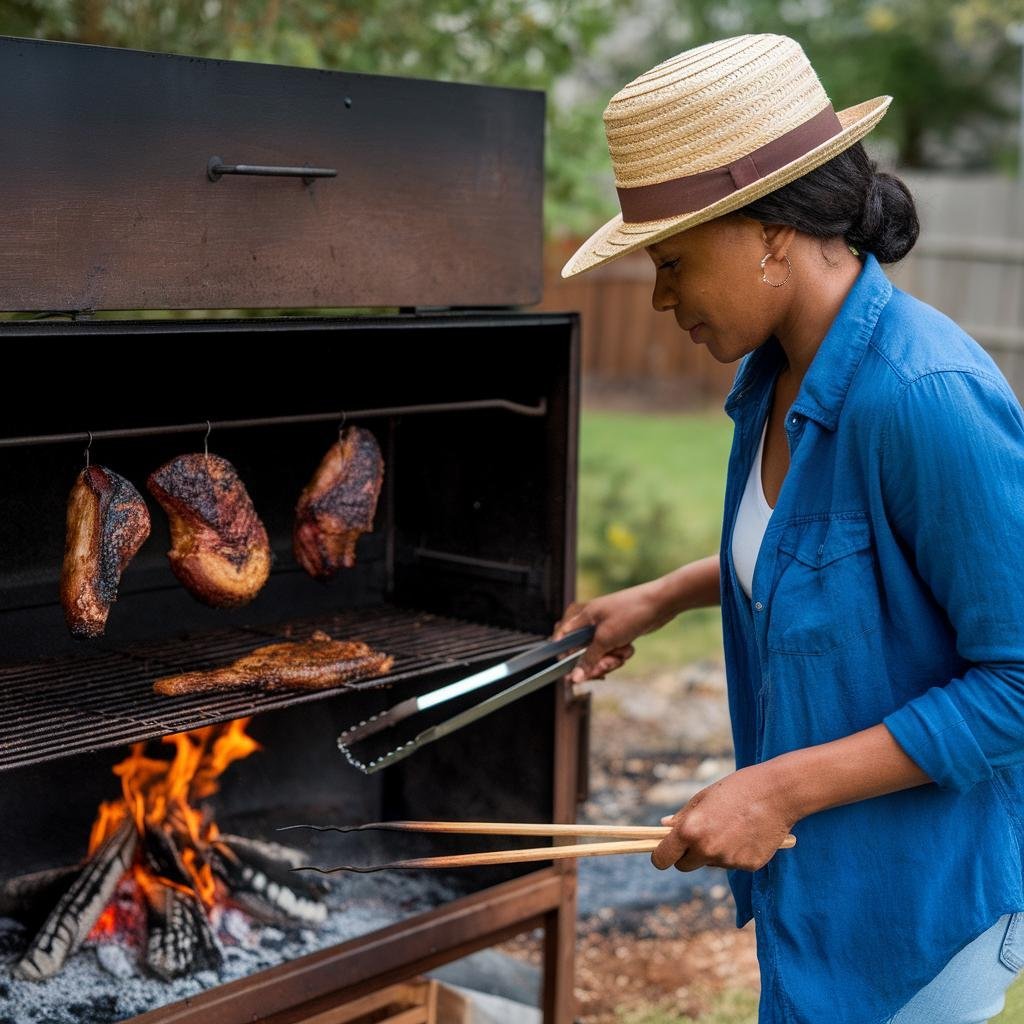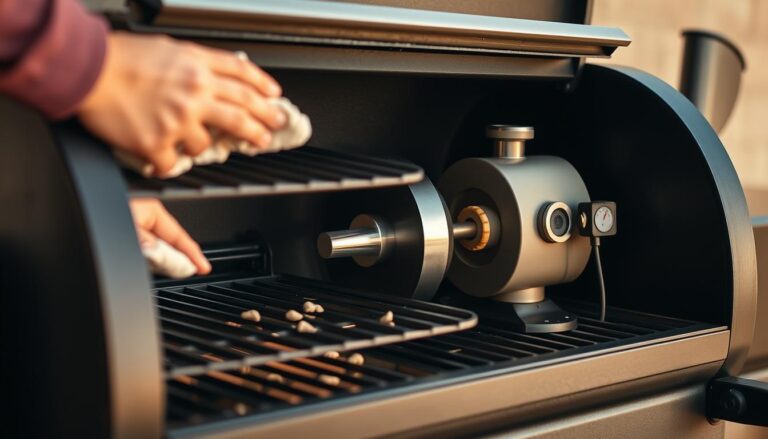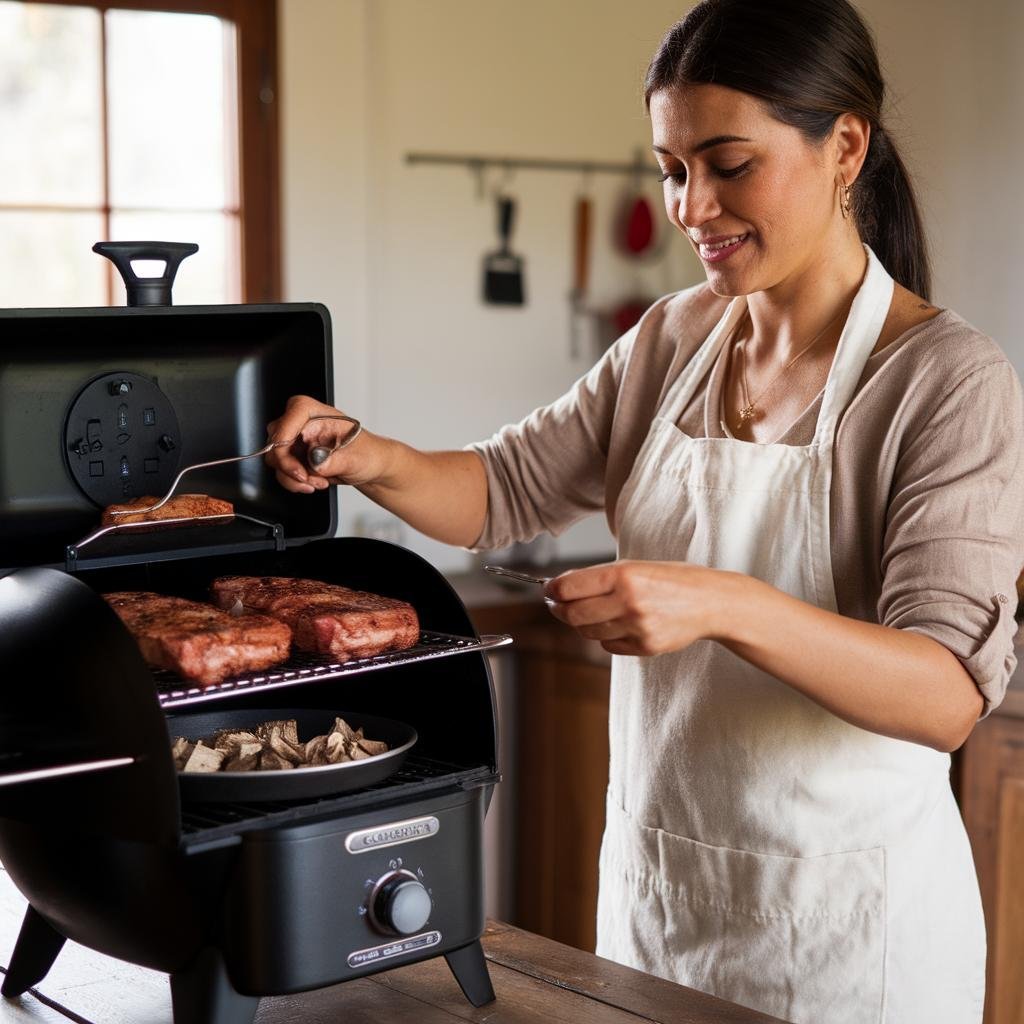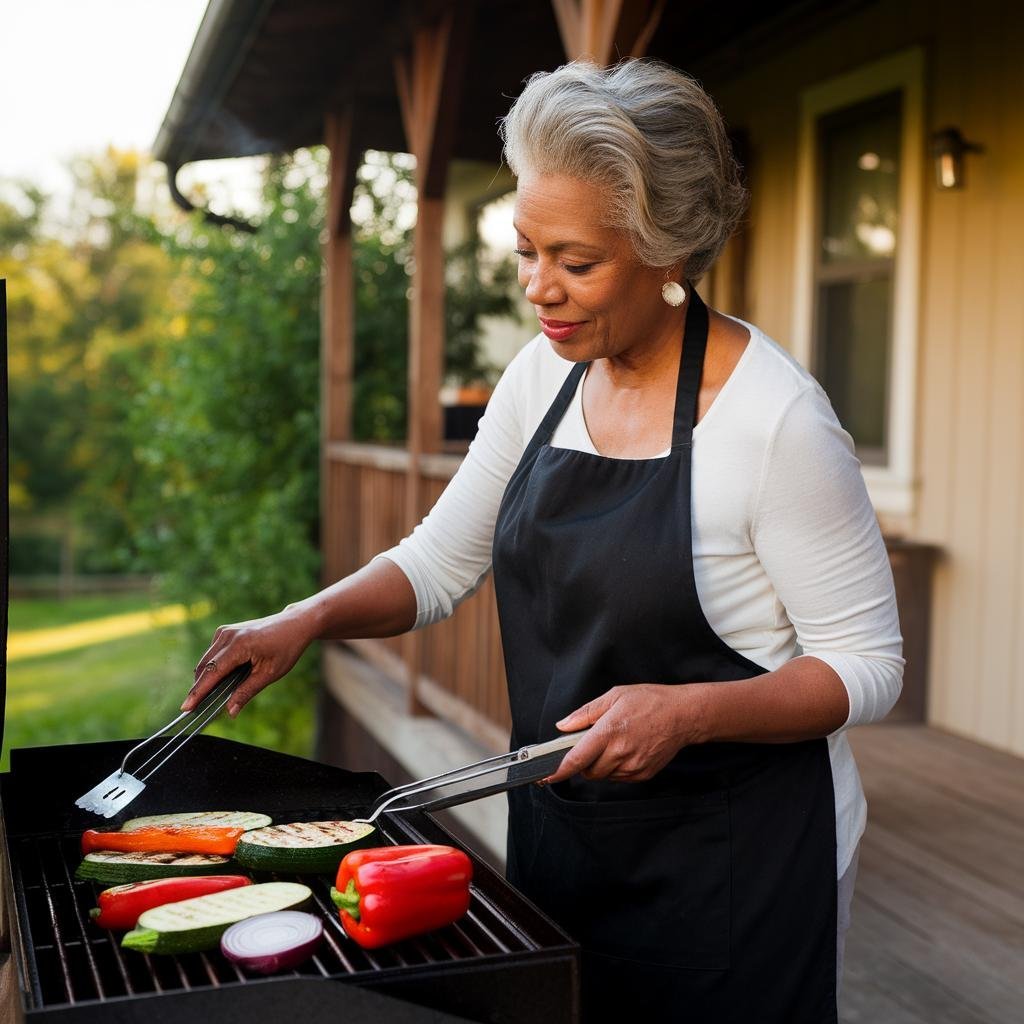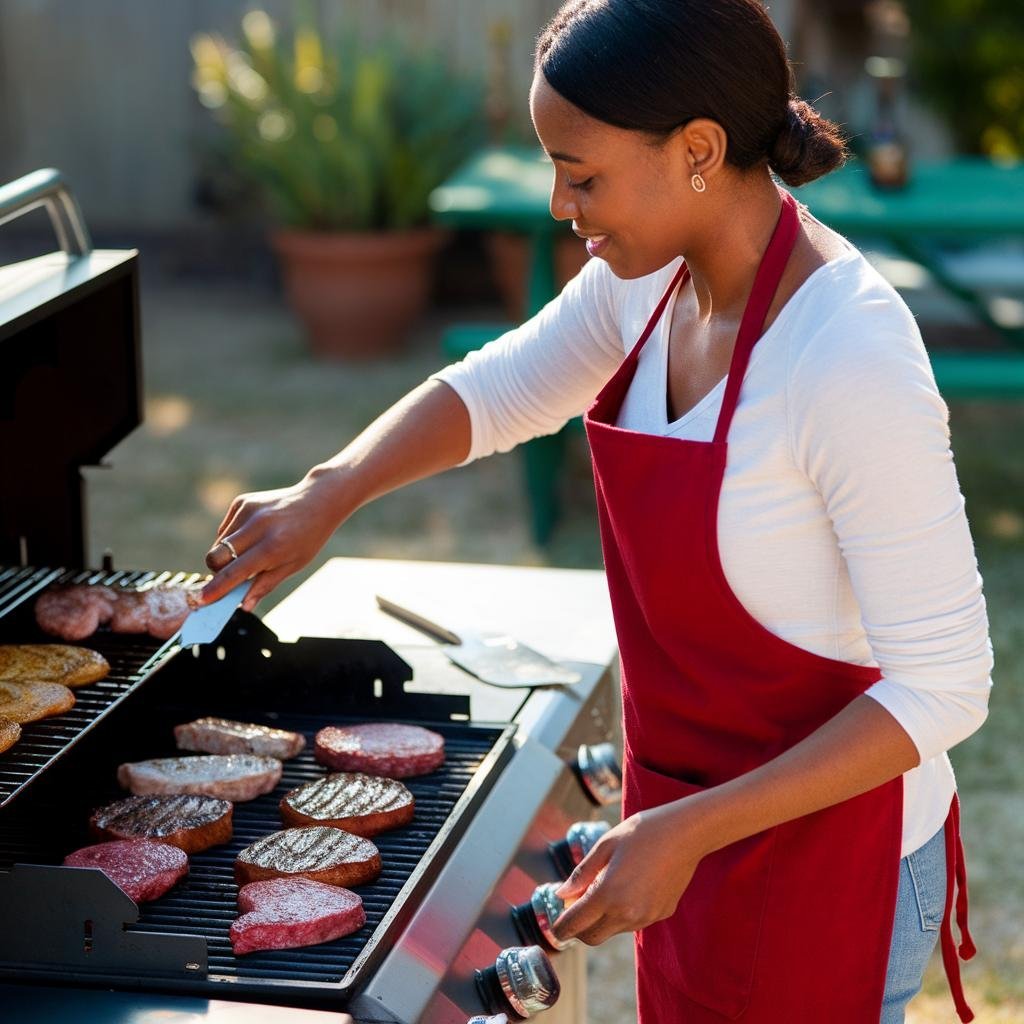Disclosure: This Post Contains Affiliate Links; We earn a commission on purchases.
Grills are essential appliances in commercial kitchens, but they can sometimes experience common problems. By following certain troubleshooting tips, you can easily fix these issues without major repairs or replacements. Some common grill problems include the grill won’t turn on, the flame won’t stay lit, the grill produces black smoke, the grill is making strange noises, the flame is yellow or orange, and the grill cooks food unevenly.
Key Takeaways:
- Grill Troubleshooting is essential for maintaining the performance of your grill.
- BBQ problems such as the grill not turning on or uneven cooking can be easily fixed by following the right steps.
- Regular grill maintenance tips can help prevent common issues and prolong the lifespan of your grill.
- Don’t hesitate to consult a service technician if necessary or if you encounter any serious grill problems.
The Grill Won’t Turn On
If your grill isn’t turning on or heating up, it can be frustrating and put a damper on your grilling plans. However, there are a few common reasons why your grill may not be heating properly, and troubleshooting them can save you time and money.
“My grill won’t heat up even though I’ve tried turning it on multiple times. What could be causing this issue?” – Grill enthusiast.
Battery Replacement for Battery-Operated Grills
For battery-operated grills, the most common reason for a grill not heating is a depleted battery. Before troubleshooting further, ensure that the batteries in your grill are still functional. Replace them with fresh ones if necessary. A reliable power source is essential for igniting the grill and providing the heat needed for cooking.
Clogged Igniter for Push-Start Igniters
Push-start igniters, on the other hand, may experience issues with the igniter mechanism. Over time, dirt, grease, and debris can accumulate and clog the igniter, preventing it from creating a spark. To resolve this problem, inspect the igniter and clean it thoroughly. Use a soft brush or a toothpick to remove any obstruction, ensuring that the spark can ignite the gas properly.
If cleaning the igniter doesn’t solve the issue, it might be necessary to contact a professional service technician. They can assess the button or wiring-related issues, repair or replace any faulty components.
The Flame Won’t Stay Lit
If your grill is turning on but the flame keeps extinguishing, there are several common causes that you can troubleshoot to resolve the issue. By identifying and addressing the root cause, you can enjoy uninterrupted grilling sessions without any hassle.
One possible reason for the flame not staying lit is improper preheating. Ensure that you preheat the grill for a sufficient amount of time before cooking. This allows the burners to reach the optimal temperature and helps maintain a steady flame throughout the grilling process.
Misaligned tubes can also lead to an unstable flame. Inspect the gas tubing connections and verify that they are properly aligned with the burner ports. Any misalignment can cause gas leaks or hinder the flow of fuel, resulting in a flame that continually goes out. Adjust the tubes as needed to ensure a secure and even connection.
Another potential issue could be a blockage in the tubes. Over time, debris, grease, or food residue can accumulate and obstruct the gas flow. This blockage can interrupt the ignition process and cause the flame to extinguish. To fix this, carefully clean the tubes using a grill brush or a pipe cleaner to remove any obstructions.
If cleaning the tubes does not resolve the problem, the igniter might need to be replaced. The igniter is responsible for producing the spark that initiates the flame. If the igniter is faulty or worn out, it may fail to consistently ignite the gas, resulting in a flame that won’t stay lit. Contact a professional technician or refer to the grill’s manual for instructions on replacing the igniter.
By addressing these potential causes, you can troubleshoot and fix the issue of the flame not staying lit on your gas grill. Remember to always prioritize safety when working with gas-powered appliances, and consult a professional if you are unsure how to proceed. Happy grilling!
The Grill Produces Black Smoke
One common problem that grill owners may encounter is excessive black smoke production. This can be caused by a buildup of grease on the grill, resulting in improper combustion and airflow. Fortunately, there are troubleshooting steps you can take to eliminate black smoke and get your grill back to optimal performance.
Cleaning the Grill
To address black smoke production, start by thoroughly cleaning your grill. Remove any grease or residue buildup both inside and outside of the grill. Use a grill brush or scraper to scrub the grates and remove any charred food particles. Additionally, check and clean the drip tray or grease pan to ensure they are not obstructed. By removing grease and debris, you can improve the grill’s overall airflow and combustion.
Ensuring Proper Gas-to-Air Mixture
The gas-to-air mixture in your grill plays a crucial role in achieving clean combustion and preventing the production of black smoke. To optimize this mixture, inspect and clean the venturi tubes and air shutters. These components help regulate the flow of gas and air into the burners. Use a brush or cloth to remove any debris or blockages. Ensuring unobstructed airflow will result in a more efficient burn and reduce the likelihood of black smoke.
By following these troubleshooting steps, you can address black smoke production on your charcoal grill. Cleanliness and proper gas-to-air mixture are key factors in achieving optimal combustion and eliminating smoke issues. Remember to regularly clean your grill and inspect its components for any obstructions or buildup. With these maintenance practices, you can enjoy a smoke-free grilling experience.
The Grill is Making Strange Noises
If you’ve noticed strange noises coming from your grill, don’t worry, it’s a common issue that can be resolved with some troubleshooting. These noises are often caused by environmental factors or air bubbles trapped in the gas hose. By following a few maintenance tips, you can get your grill back to whisper-quiet performance.
First, check for any leaks in the gas hose. A leak can cause unusual noises and poses a safety risk. Carefully inspect the hose for any cracks or damage. If you find a leak, it’s important to replace the hose before using the grill again.
Next, refer to your grill’s owner’s manual for instructions on purging the gas hose. Air bubbles trapped in the hose can create a rattling or vibrating sound. Following the manufacturer’s guidelines, carefully purge the hose to remove any trapped air. This will help restore the smooth operation of your grill and eliminate the unusual noises.
If the strange noises continue even after checking for leaks and purging the hose, it’s advisable to contact a service technician. They can assess the issue further and provide the necessary repairs or replacements. Remember, it’s always better to err on the side of caution when it comes to gas grills and safety.
Quick Tips:
- Check for leaks in the gas hose.
- Purge the gas hose according to the owner’s manual.
- Consult a service technician if the noises persist.
The Flame is Yellow or Orange
One common issue that grill owners may encounter is a yellow or orange flame when their grill is in use. This can be a cause for concern, as a properly functioning grill should produce a blue flame. However, there is often a simple explanation for this phenomenon.
An orange or yellow flame usually indicates a clogged venturi tube. The venturi tube is responsible for mixing the gas and air before it reaches the burners. When it becomes blocked, the airflow is disrupted, resulting in an improper fuel mixture and a colored flame.
To troubleshoot this problem, you can follow these steps:
- Turn off the grill and disconnect it from the gas source.
- Carefully remove the venturi tubes from the burners.
- Inspect the venturi tubes for any debris or blockages.
- Clean the tubes using a grill brush or a pipe cleaner to remove any obstructions.
- Reattach the venturi tubes to the burners securely.
- Reconnect the grill to the gas source.
- Turn on the grill and test the flame. It should now be blue and steady.
If adjusting the venturi tubes does not resolve the issue, you may need to check and adjust the control valve as well. Refer to your grill’s manual for specific instructions on adjusting the control valve.
By ensuring proper fuel flow and addressing any obstructions in the venturi tubes and control valve, you can fix the yellow or orange flame problem and ensure optimal performance from your grill.
Troubleshooting Tip:
To prevent venturi tube blockages, it is important to keep your grill clean and free from grease build-up. Regular maintenance and cleaning of the burners, tubes, and other components will help prevent these issues from occurring.
| Cause | Solution |
|---|---|
| Clogged venturi tube | Clean and remove any obstructions from the venturi tube using a grill brush or pipe cleaner. |
| Control valve adjustment | Check and adjust the control valve according to the grill’s manual. |
The Grill Cooks Food Unevenly
One common problem many grill enthusiasts face is uneven cooking. This issue can be frustrating, as it results in some food being overcooked while other portions remain undercooked. However, there is a simple solution to this problem.
The uneven cooking is often caused by a blocked burner. Over time, drippings can accumulate and clog the burner ports, restricting the flow of gas. This restriction leads to uneven heat distribution and cooking. To ensure your food cooks evenly, regular maintenance is key.
To fix this problem, you need to clean the burners thoroughly. This can be done using a wire brush to remove any build-up or debris that may be blocking the burner ports. Make sure to turn off the gas supply and disconnect the grill from the propane tank before cleaning.
Start by removing the grates and heat deflectors to access the burners. Carefully inspect each burner and use the wire brush to scrub away any accumulated residue. Pay special attention to the small openings and ensure they are clean and free of obstructions.
Once the burners are clean, reassemble the grill and test it. You should notice a significant improvement in the evenness of your cooking. If the problem persists, it may be a sign of a different issue, and you may need to consult a professional.
| Steps to Fix Uneven Cooking |
|---|
| Step 1: Turn off the gas supply and disconnect the grill from the propane tank. |
| Step 2: Remove the grates and heat deflectors to access the burners. |
| Step 3: Inspect each burner and use a wire brush to scrub away any accumulated residue. |
| Step 4: Pay special attention to the small openings of the burners and ensure they are clean and free of obstructions. |
| Step 5: Reassemble the grill and test it to see if the issue is resolved. |
Conclusion
Troubleshooting common grill problems is easier than you may think. By following a few simple steps, you can quickly fix issues like the grill not turning on, the flame not staying lit, black smoke production, strange noises, yellow or orange flames, and uneven cooking. With the right maintenance and troubleshooting techniques, you can have your grill back to its perfect grilling performance in no time.
Remember, you don’t always need to call a professional for help. By practicing safe habits and utilizing the tips provided in this article, you can become a pro at fixing common grill issues yourself. Whether it’s replacing a battery, cleaning the igniter, aligning the tubes, or adjusting the control valve, these actions can have a significant impact on your grilling experience.
However, if you encounter more complex problems or are unsure about any step, it’s always a good idea to consult a service technician. Your safety should be the top priority, so don’t hesitate to seek professional assistance if needed.
Ultimately, maintaining and troubleshooting your grill is essential for consistent and enjoyable grilling sessions. By being proactive and addressing issues as they arise, you can prolong the lifespan of your grill and ensure that each cooking adventure is a success.
Source Links
- https://www.thespruceeats.com/fixes-for-common-gas-grill-problems-334923
- https://www.cpsohio.com/blog/post/6-most-common-grill-problems-and-their-fixes
- https://clarkshardware.com/2023/10/30/5-common-grill-issues-troubleshoot/

Ryan Conlon is a BBQ enthusiast and inspired chef on a journey through the smoky, savory world of outdoor cooking. Hailing from the heart of the Midwest, Ryan’s passion for grilling ignited during his early years, where family gatherings often revolved around the sizzle of the grill and the aroma of seasoned meats.

